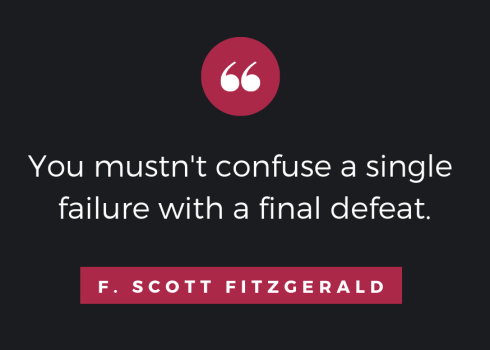How to Respond to a Job Rejection Email & Why You Should

Getting rejected while job hunting can be discouraging. But knowing how to deal with job rejection in a constructive way can help you find new opportunities. In order to take advantage of those opportunities, you’ll need to know the appropriate etiquette for responding to a job rejection letter.
Why Did I Get a Job Rejection Letter?
Often, employers narrow down lists of applicants based on who they believe is capable of performing the job. Consequently, job seekers often face rejection when they’re unable to convince an employer they’re sufficiently qualified. This may be because the applicant has few career-related examples to help demonstrate their abilities.
But convincing an employer you’re capable of performing the job is only one of many hurdles. Some jobs receive dozens or hundreds of applications. Among a lengthy list of capable candidates, employers choose only those best suited to the position. Qualified candidates are often face job rejection because another person had more desirable skills.
Of course, it’s also possible the person who was hired had experience similar to yours. You may have even been more qualified than the person who got the job. These kinds of job rejections can occur when you haven’t tailored your resume for the job in question, or failed to demonstrate how your transferable skills made you a perfect candidate.
Why Give a Response to a Job Rejection Email
Responding to a job rejection letter can communicate something about your character. It says you’re a professional and that you’re personally invested in getting the position. Your response to a job rejection email can also help you maintain a personal connection with the hiring manager, which gives you the chance to follow-up with them later.
As the saying goes, “you’ve got to be in it to win it.” Whoever received the job offer in your place may have received multiple offers. They may not accept the job you want in pursuit of a different opportunity. That’s when it doesn’t hurt to be on the hiring manager’s mind, and when it can beneficial to have demonstrated your sincere interest in the position in your rejection letter response.
The circumstances when you should not respond to a job rejection email are mostly self-explanatory. If your interview went miserably, if you believe you were rejected because you’re deeply unqualified, and so forth. But unless you have a specific reason to believe your rejection falls into this category, responding can be one of the most productive ways to deal with job rejection.
Sample Follow-Up Email After Job Rejection Letter
Hey Nick,
I enjoyed meeting you during my interview for the internship with Brand Incorporated. I really appreciated learning about the company’s culture and the numerous opportunities available there. I hope we have the chance to talk more in the future.
After meeting you, I have even greater interest in eventually working with Brand Incorporated. If a position appropriate for my skills ever becomes available, I would greatly appreciate future consideration.
I hope we can talk again sometime. Thanks for your time,
Susan Smith
What to Avoid Saying in Your Job Rejection Follow-Up Email
You can learn how to handle rejection with grace by watching professional athletes. You don’t need a degree in psychology to figure out that people love competitors who are humble in defeat, undeterred, and vigilant about continuing to improve. But people have a very different reaction for sore losers.
Following up to a job rejection email response with negativity is worse than not following up at all. Don’t even mention your disappointment because it’s implied in the letter you’re writing. Highlighting it further makes the message about your feelings instead of your continued interest, or about trying to maintain new relationships.
Finally, don’t ask for feedback in your reply to a job rejection email. Companies are hesitant to give out this kind of information. Not only because it can be an uncomfortable conversation, but because it can open employers up to discrimination lawsuits. You’re asking for an enormous favor, which can be about as bad as writing a negative response.
Handling Rejection
To quote F. Scott Fitzgerald, “you mustn't confuse a single failure with a final defeat.” On the contrary, job rejection is an almost unavoidable part of the process of getting the jobs you want. Being tired of job rejection is understandable, but remaining professional in uncomfortable circumstances can literally improve your chances of landing the job you want.
Of course, it’s easier to stay vigilant with your job search when you know you’re on the right path. If you’re not as certain as you’d like to be, take a few minutes to check out MyPath’s Career Wizard Quiz.
